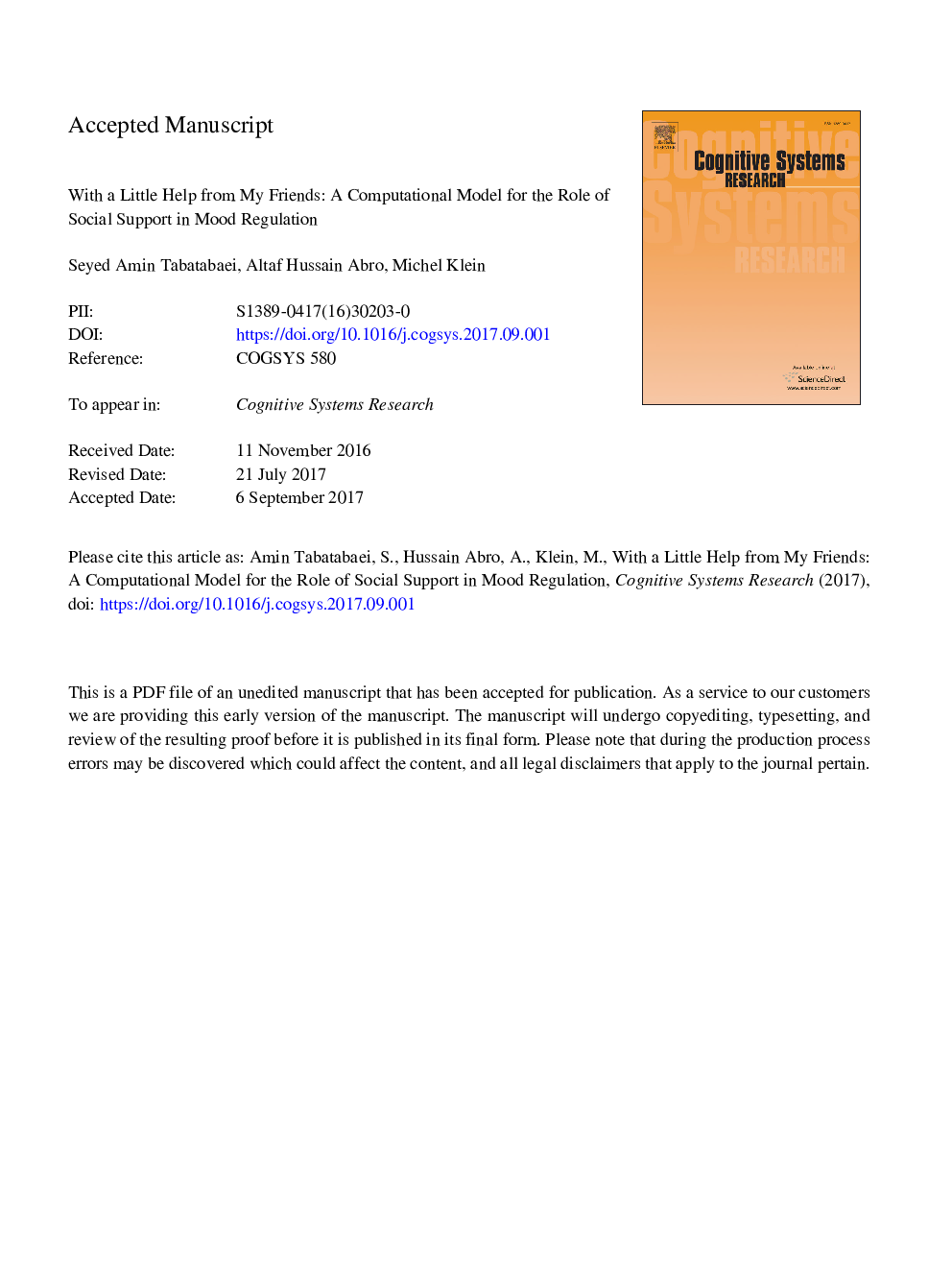| Article ID | Journal | Published Year | Pages | File Type |
|---|---|---|---|---|
| 4942331 | Cognitive Systems Research | 2018 | 24 Pages |
Abstract
The growing interest in the role of social support in mental and physical health has led to the development of several intelligent systems that aim to use social mechanisms to simulate healthy behaviour. In this paper a computational model of a human agent is presented which describes the effect of social support on mood. According to the literature, social support can either refer to the social resources that individuals perceive to be available or to the support that is actually provided in problematic situations. The proposed model distinguishes between both roles of social support. The role of social network characteristics has been taken into account, as an individual can perceive or receive social support through his/her social network. In addition, the number of connections (friends), strength of ties (relationships), social isolation and social integration have been studied. Simulation experiments have been done to analyze the effect of the different types of support in different scenarios and also to analyze the role of various social network characteristics on the mood level. It is shown that support can help to reduce the induced stress and thus can contribute to healthy mood regulation and prevention of depression. The presented model provides a basis for an intelligent support system for people with mood regulation problems that take the social network of people into account.
Related Topics
Physical Sciences and Engineering
Computer Science
Artificial Intelligence
Authors
Seyed Amin Tabatabaei, Altaf Hussain Abro, Michel Klein,
